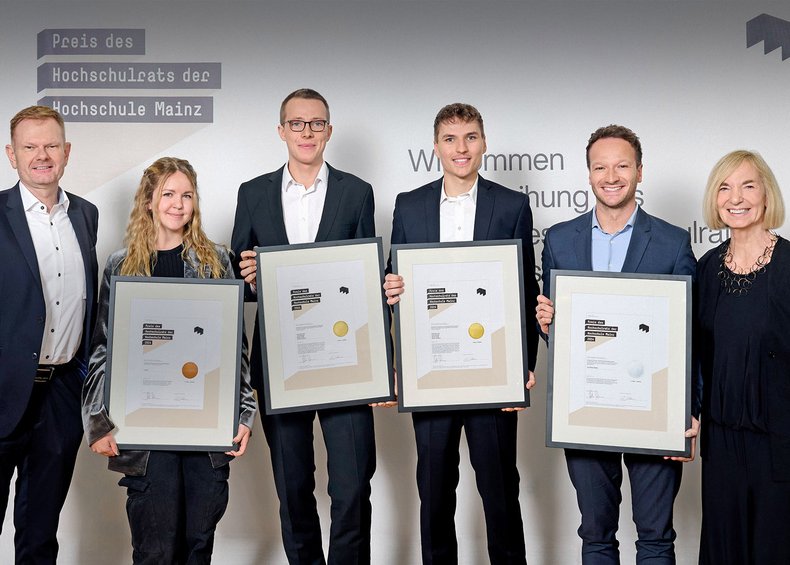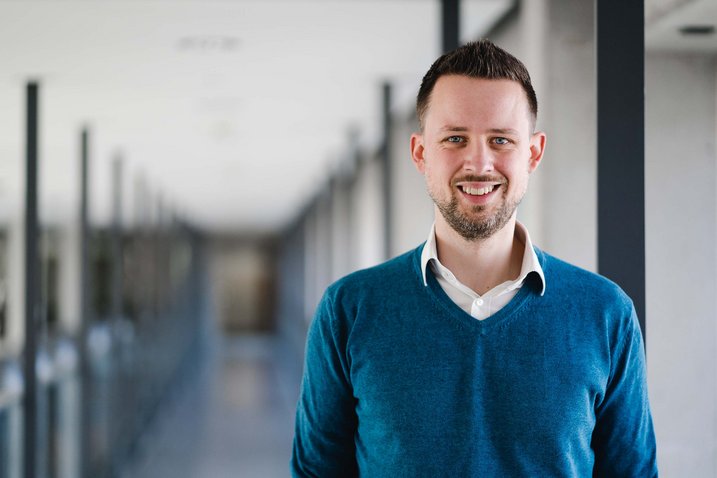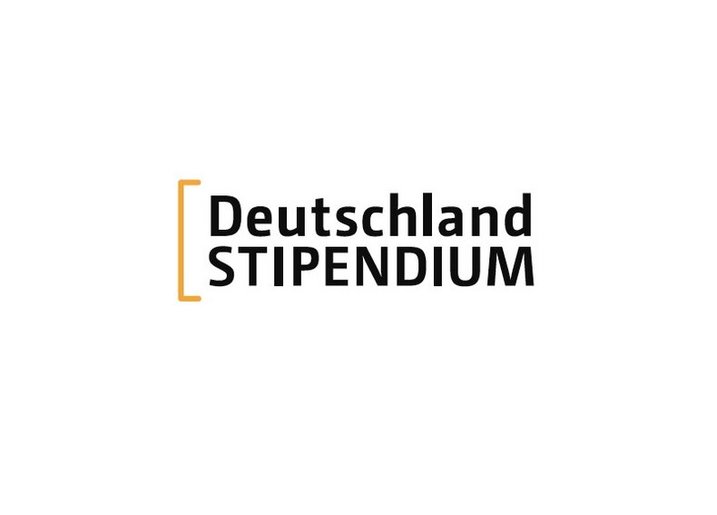During a ceremony at Volksbank Darmstadt Mainz on July 4, 2024, Prof. Dr. Susanne Weissman, President of Mainz University of Applied Sciences, and Prof. Dr. Michael Maskos, Chairperson of the University Council of Mainz University of Applied Sciences, presented this year’s University Council Awards for outstanding academic achievements. Prof. Dr. Susanne Weissman emphasized at the award ceremony: “All of the nominated theses are characterized above all by the fact that they take a position on current socio-political issues. As a university, we are particularly proud of our students who are working on a future worth living for everyone with a keen and critical mind.” This year, a total of six graduates from Mainz University of Applied Sciences and the Symbiosis Centre for Information Technology (SCIT) in India were honored with the award, which is sponsored by Volksbank Darmstadt Mainz and endowed with a total of 10,000 Euro.
- 1st prize, endowed with 5000 Euro, went to Alexander Geib and Lukas Metzger, graduates of the degree program IT Management on-the-job at the School of Business, together with Aakhya Singh and Namita Varghese, graduates of the degree program Master Business Administration - Data Science and Data Analytics at the Symbiosis Centre for Information Technology (SCIT) in Pune (India).
Research project: Stroke Prediction
Advisor: Prof. Dr. Anett Mehler-Bicher, Vice President for Research and Transfer and Professor of Information Systems, and Prof. Dr. Bernhard Ostheimer, Professor of Information Systems, School of Business - 2nd prize, endowed with 3000 Euro went to Jan-Philipp Högner, graduate of the degree program Building and Property Management/Facility Management
Master’s thesis: Collaboration Score – ein Instrument zur Quantifizierung und Incentivierung der partnerschaftlichen Zusammenarbeit in Bauprojekten (Collaboration Score – an Instrument for Quantifying and Incentivizing Collaborative Partnerships in Construction Projects)
Advisors: Prof. Dr.-Ing. Axel Freiboth, School of Engineering, Department of Civil Engineering, and Dipl.-Ing. Christoph Meyer, Real Estate Economist, Drees & Sommer - 3rd prize, endowed with 2000 Euro, went to Lea Bell, graduate of the degree program Time-Based Media
Master’s thesis: Wunschwurm – eine soziale Initiative (The Inchworm of Wishes – a Social Initiative)
Advisor: Prof. Tjark Ihmels, Professor of Interactive Design, School of Design, Media Design Department
Personalized stroke prediction
Alexander Geib, Lukas Metzger, Aakhya Singh, and Namita Varghese dedicated their award-winning research project (1st prize) to a topic that is highly relevant to society – the prediction of strokes. The research team developed a data-based decision model that predicts the personal risk of a stroke. Although several models and databases already exist on the subject of stroke prediction, these are limited to the medical-scientific field. The students from Mainz and Pune, however, wondered whether it would be possible to estimate the individual risk of stroke based on personal identification data and then provide basic personalized recommendations. The resulting prototype visualizes the prediction of the risk of a stroke based on a personal profile and the input of selected parameters relating to age, height, weight, lifestyle and eating habits.
In their joint appraisal of the project thesis, Prof. Dr. Anett Mehler-Bicher and Prof. Dr. Bernhard Ostheimer emphasize: “The task chosen by the students themselves reflects their extraordinary social commitment. The result represents an initial idea of how such a prototype could be designed and is an excellent basis for further developments building on this. With this project, they are working at the heart of the UN Sustainable Development Goal 3: Good Health and Well- Being. With regard to their commitment to university policy, the students are actively supporting greater collaboration between the two universities with this international project.”
Collaboration Score – an Instrument for Quantifying and Incentivizing Collaborative Partnerships in Construction Projects
In his Master’s thesis, Jan-Philipp Högner (2nd prize) developed the “Collaboration Score,” a scoring system that aims to optimize collaboration and efficiency in the construction industry. “In his thesis, this graduate deals with a very timely and important topic for the construction industry,” emphasizes his advising professor, Dr.-Ing Axel Freiboth. The construction industry is facing a multitude of challenges. One of these is the current procurement and contract law situation in Germany, which prioritizes the protection and avoidance of liability of the individual parties. This often leads to projects being delayed as all project participants pursue their individual interests. This increases the risk of conflict and reduces efficiency.
Jan-Philipp Högner developed the Collaboration Score, an instrument that can be used both in current project workflow structures and in partnership-based forms of project management, with the aim of making construction projects more cost-effective for all parties. The objective was to encourage project participants to align their interests with the common project goals and to design processes with a focus on solutions, particularly through greater transparency and a participatory approach. The Collaboration Score offers the opportunity to quantitatively capture and evaluate common processes in construction projects. This enables the tool to make collaboration measurable. On this basis, target values can be defined and linked to a bonus payment.
Wunschwurm – a Social Initiative
The master’s thesis Wunschwurm – a Social Initiative by Lea Bell (3rd prize) from the Time-Based Media degree program has now been brought to life by the non-profit association Wunschwurm e. V. The project has dedicated itself to fulfilling specific wishes of people in need from social facilities. At the heart of the project is the platform www.wunschwurm.de, which can be used to upload handwritten and hand-painted wish lists and register donations. The Wunschwurm association currently consists of eight members and a team of 16 supporters. Since its founding in 2021, 300 wishes from people in need - some in the form of gifts with greeting messages – have been granted to six social institutions in Mainz. Lea Bell was able to secure Prof. Dr. Gerhard Trabert as patron for the Wunschwurm. The work of the association is to be continued. However, more support is needed to secure the future of the project.
Her advising professor Tjark Ihmels praised the graduate's achievement, saying: “It is to Lea Bell’s great credit that this idea – developed in a class during the 2020 Covid-19 pandemic semester – has not just remained an idea, a design concept, but is now actually a working social initiative in Mainz and the surrounding area. The implementation of such an idea requires not only empathy and creative and organizational skills, but also perseverance and tenacity to overcome the many obstacles that stand in the way of its realization. It was necessary to found a non-profit association, set up an organizational structure, acquire funding, and automate the entire donation process using a web portal. With her values and expertise, Lea Bell represents our university to the public in an outstanding manner.”




